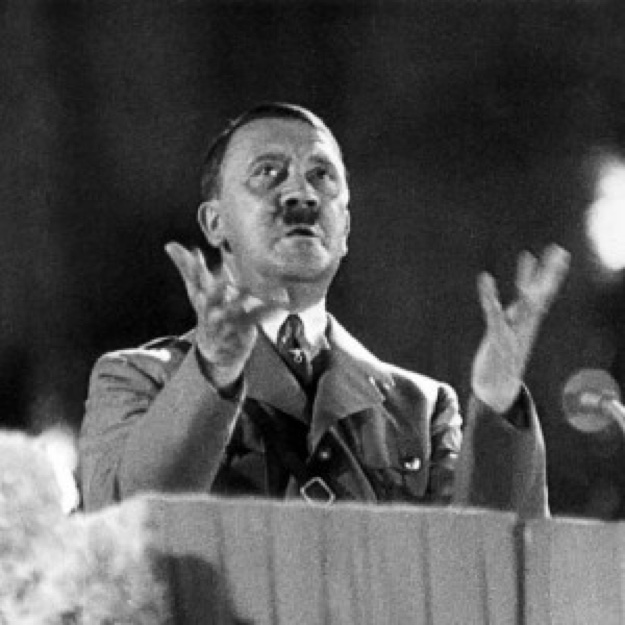Germany’s Occult Nexus to Nazism
The Thule Society stands as a fascinating and enigmatic chapter in Germany’s tumultuous history, intertwining nationalism, mysticism, and the early seeds of Nazism. Emerging in the aftermath of World War I, this German occultist and nationalist group played a notable, albeit complex, role in shaping the political landscape that eventually led to Adolf Hitler’s rise to power. Let’s delve into the origins, ideology, activities, and lasting impact of the Thule Society, exploring its intricate connections to Germany and the birth of the Nazi movement.
Origins and Foundation
Founded in Munich in December 1918, the Thule Society arose amidst the chaos and despair that gripped Germany following its defeat in World War I. The nation was reeling from political instability, economic hardship, and widespread disillusionment, creating fertile ground for radical ideologies to take root. The society’s name, “Thule,” references a mythical northern land described by ancient Greek and Roman geographers, symbolizing the farthest northern reaches of the known world. This allusion was intended to evoke notions of Aryan supremacy and a glorified Germanic heritage, aligning with the society’s nationalist aspirations.
Rudolf von Sebottendorf, an Austrian occultist, was a pivotal figure in establishing the Thule Society. He attracted a diverse group of individuals interested in mysticism, esotericism, and nationalist ideology, creating a space where these seemingly disparate interests could converge and influence one another.
Ideology and Beliefs
At its core, the Thule Society was deeply rooted in the völkisch movement, which emphasized ethnic nationalism, racial purity, and the revival of ancient Germanic traditions. This ideology promoted the unity of ethnic Germans and the exclusion of those deemed outsiders, particularly targeting Jewish communities. The society’s blend of nationalist fervor with occult and mystical beliefs set it apart from other political groups of the time. Members engaged in rituals and symbolic practices aimed at fostering national unity and spiritual rejuvenation, weaving together the threads of mysticism and nationalism into a potent ideological tapestry.
Anti-Semitism was a central component of the Thule Society’s beliefs, reflecting and reinforcing the broader right-wing and nationalist sentiments prevalent in post-war Germany. This vehement anti-Jewish stance was not just a peripheral sentiment but a driving force behind the society’s ideology, aligning seamlessly with the emerging Nazi narrative.
Activities and Influence
The Thule Society was actively involved in Munich’s political scene, providing a platform for nationalist and right-wing groups to organize and disseminate their ideas. In 1919, the society became entwined with the German Workers’ Party (DAP), a small nationalist group struggling to gain traction. Rudolf Hess, a prominent member of the Thule Society, played a crucial role in merging the society’s nationalist ideology with the organizational structure of the DAP. This collaboration laid the groundwork for what would soon become the National Socialist German Workers’ Party (NSDAP), more commonly known as the Nazi Party, in 1920.
While the Thule Society itself did not transform into the Nazi Party, its members, including Rudolf Hess and Anton Drexler, were instrumental in the early development of Nazism. The society’s ideological contributions, particularly its emphasis on Aryan supremacy and anti-Semitism, significantly influenced the nascent Nazi movement.
Connection to Adolf Hitler
Adolf Hitler’s relationship with the Thule Society is nuanced and indirect. Although there is no concrete evidence to suggest that Hitler was a formal member of the society, the ideological overlaps and interactions between members of both groups facilitated the spread of nationalist and anti-Semitic ideas that Hitler would later champion. Hitler joined the German Workers’ Party in 1919, where his skills as a speaker and propagandist quickly made him a prominent figure. The environment cultivated by the Thule Society provided an ideological foundation that Hitler could draw upon, even if his personal involvement with the society was limited.
Key figures from the Thule Society, such as Rudolf Hess, went on to occupy significant positions within the Nazi hierarchy, with Hess becoming Hitler’s Deputy Führer. This connection underscores the Thule Society’s indirect impact on Hitler and the broader Nazi leadership, highlighting how early occult and nationalist networks contributed to the shaping of Nazi ideology.

Decline and Dissolution
As the Nazi Party gained prominence in the early 1920s, the influence of the Thule Society began to wane. The Nazi leadership sought to distance itself from overt occultism to appeal to a broader base, focusing instead on political strategies and mass mobilization. This strategic shift allowed the Nazi Party to consolidate power without being hindered by the more esoteric and secretive elements that characterized the Thule Society.
Once the Nazis solidified their grip on power, they marginalized and suppressed independent nationalist and occult groups, including the Thule Society. By the mid-1920s, the society had ceased to exist as a significant political force, overshadowed by the political machinery and propaganda prowess of the Nazi regime.
Legacy and Historical Assessment
The legacy of the Thule Society is a subject of ongoing historical debate. While it has been portrayed in various historical studies and popular culture as a mysterious and secretive organization with esoteric ambitions, scholars generally agree that its direct influence on the Nazi Party was limited. The early organizational support and ideological groundwork provided by the Thule Society were overshadowed by the broader socio-political dynamics that propelled Nazism to power, such as economic turmoil, political instability, and effective mass propaganda.
Nonetheless, the Thule Society remains a point of interest for those studying the interplay of mysticism, ideology, and politics in early 20th-century Germany. It serves as a reminder of how fringe groups and occult beliefs can intersect with mainstream political movements, contributing to their ideological foundations even if their direct influence is not as substantial as often portrayed.
Parting Wisdom
The Thule Society was a significant, though short-lived, nationalist and occultist organization that played a role in the early ideological environment of post-World War I Germany. Its blend of völkisch ideology, anti-Semitism, and mystical beliefs provided a backdrop against which the Nazi Party could emerge. While the society itself did not survive the ascent of Nazism and was eventually overshadowed by the political dominance of the Nazi regime, its legacy endures as a compelling example of the complex and often obscure forces that can influence political movements. Understanding the Thule Society offers valuable insights into the intricate tapestry of ideology, mysticism, and politics that shaped one of history’s most infamous regimes.


